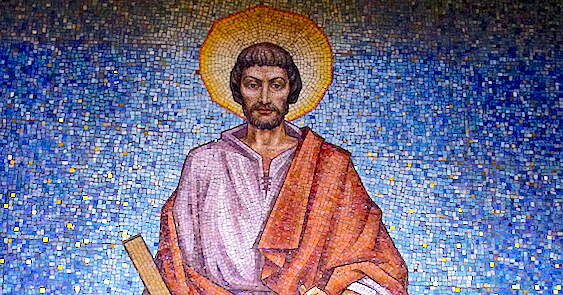
A shadow has crept into Joseph's happiness. Mary is now lost to him: he will be alone, and she too will be alone forever. All this is so unexpected, so mysterious and so incredible that Joseph does not know what to do; but it is then that his holiness and spiritual wisdom come to the fore. It is then that he shows himself to be a just man, fully in accord with God's will.
Faced with uncertainty, his first reaction is to opt for the solution that is the most respectful of Mary. This is the reaction of a good man with a generous heart. He respects Mary too much to condemn her to the reprobation of the whole village, and he respects God's law too much to found a home on such uncertain grounds. So he simply, but with a heavy heart, gives Mary her freedom back.
This greatness of Joseph's soul is rooted in God. And God comes to the rescue of his servant by revealing his plan to him. From then on, everything becomes clear: Joseph understands Mary's silence, he grasps with a single intuition of faith what God expects of her and what God expects of him. Once again, God brings them together to place them both at the heart of salvation history.
She will give the Messiah her flesh and her features; he, the son of David and a carpenter, will be there to give him a legal name in the royal line of David.
The utmost respect for others, and a docile acceptance of God's actions: such are Joseph's responses to the mystery of Mary's maternity.
And this is how we in turn must approach the mystery of God's actions in us, in others, and in the world.
This is how we must position ourselves, in faith, to prepare for the coming of the Son of God.
Mary's motherhood was shrouded in silence from the beginning, like all the great works of God, and the same impenetrable silence veiled the incarnation of Jesus. Like Joseph, we must enter this silence with a "yes" of adoration.
Mary's maternity has no other explanation than God's love for the world and his infinitely free choice of a woman to be intimately associated with his work of re-Creation.
Jean Lévêque, Carmelite of the Province of Paris
(Excerpt from his “Commentary on Matthew 1: 12-25”)
Source: Bible et Vie Monastique